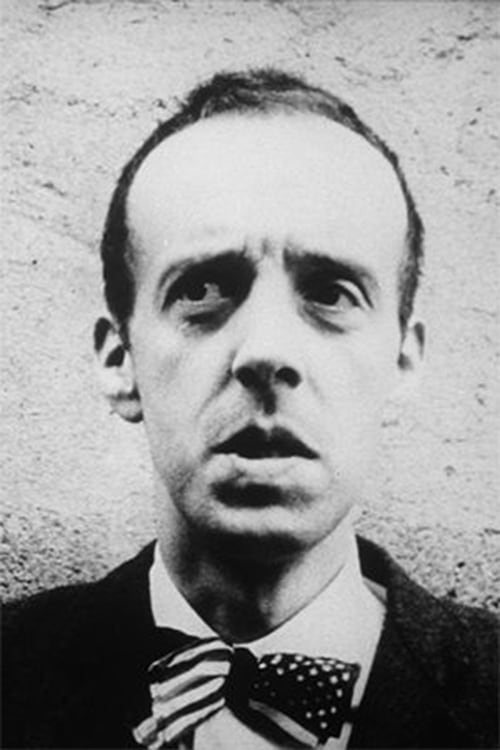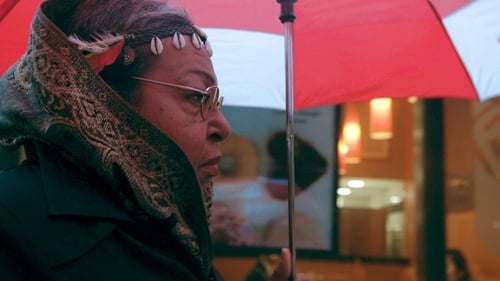
Self (archive footage)
Mientras enfrenta la ola de violencia contra las mujeres transgénero, la activista Victoria Cruz investiga la sospechosa muerte de su amiga Marsha P. Johnson en 1992.

Self
Warhol Superstar Ultra Violet (Isabelle Colin Dufresne) and Lower East Side Icon Taylor Mead (Poet/Actor/Artist) share their stories of Manhattan in the 1960s.

Himself
Marsha P. Johnson was a drag queen, sex worker, and LGBT activist who fought at Stonewall and knew Andy Warhol. She was a New York fixture who made her motto her middle name: "Pay it no mind". This documentary about her life includes the last interview she gave before the suspicious circumstances of her death in 1992.

Self
A documentary about Anton Perich, brilliant Croatian artist, naturalized New Yorker. He worked as photographer at Andy Warhol's Interview Magazine and has been active member of the Factory since early seventies.

Himself
Taylor Mead personified Beatnik in Ron Rice’s classic The Flower Thief in 1960 and has since appeared in scores of films. Fifty-one years later, The Party in Taylor Mead’s Kitchen finds Taylor still living the life of the bohemian, devoted to poetry, painting, partying, acting, homo-eroticism, gossip, and indifference to bourgeois notions of hygiene. The Party in Taylor Mead’s Kitchen offers, in stark and humorous relief, the contrasting romantic beauty and squalid dereliction of la vie boheme.

Self
An astonishing journey of the images taken by William John Kennedy in the early 60's of Robert Indiana, Andy Warhol with their iconic works.

Self
James Rasin's documentary “Beautiful Darling” honors American Transgender actress and best-known Warhol Superstar, Candy Darling, and her all-too-brief life and career, with a combination of current and vintage interview material, rarely seen archival photos and footage, and extracts from Darling's movies.

Himself
An experimental film which features Art World superstars Mark Kostabi and Taylor Mead.

Takes an in-depth look at the lives and times of the people who hung out with Andy Warhol and "worked" at the Silver Factory during the Sixties, making it all click as a new counter-culture arose and began to exert its influence throughout the arts.

Himself
The film explores the memory and the legacy of the 60s counterculture through interviews with NY political activists, artists and people on the street. The mosaic of voices heard in the documentary creates a public site for memories, reflections and hopes for the future to be shared beyond the confines of one's community. An inter-generational exploration on what is left of the 60s in people's memory and consciousness.
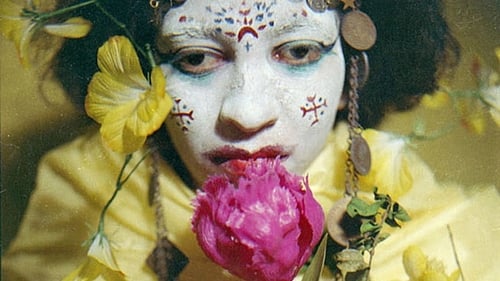
Himself
In this entrancing documentary on performance artist, photographer and underground filmmaker Jack Smith, photographs and rare clips of Smith's performances and films punctuate interviews with artists, critics, friends and foes to create an engaging portrait of the artist. Widely known for his banned queer erotica film Flaming Creatures, Smith was an innovator and firebrand who influenced artists such as Andy Warhol and John Waters.

Himself
Filmmaker Jonas Mekas follows the surrealist artist around the streets of New York documenting staged public art events.

The birth of Electra Elf & Fluffer!

Himself
The film icon/Andy Warhol darling is interviewed is his legendary cluttered apartment.
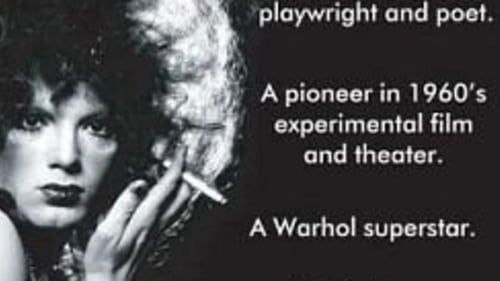
Himself
Andy Warhol described Jackie Curtis as “A pioneer without a frontier.” In this biographical documentary, Curtis’s co-workers and friends speak of her work and her influence, along with clips from Curtis’s Warhol films as well as never-before-seen footage from her stage shows.
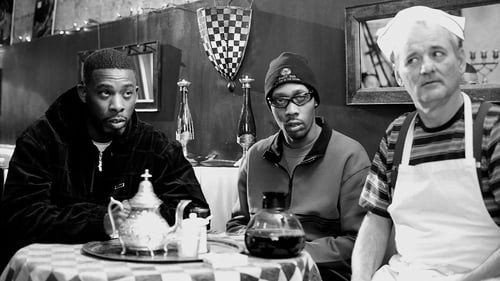
Taylor
En 1993, un corto de Jim Jarmusch titulado "Coffee and Cigarettes" recibió la Palma de Oro del Festival de Cannes. Once años depués Jarmusch rueda "Coffee and Cigarettes", un conjunto de episodios cortos. Cada secuencia muestra a diversos personajes sentados a una mesa, tomando café, fumando cigarrillos y discutiendo sobre temas tan diversos como la preparación del té inglés, las teorías sobre la conspiración contra Elvis Presley, Abbot & Costello, la ficticia banda de rock SQÜRL, París en los años veinte o el uso de la nicotina como insecticida...
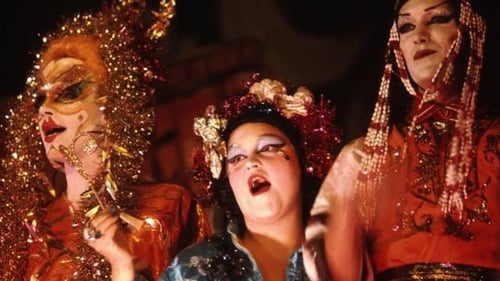
Self (archive footage)
Documentary about the gender-bending San Francisco performance group who became a pop culture phenomenon in the early 1970s.
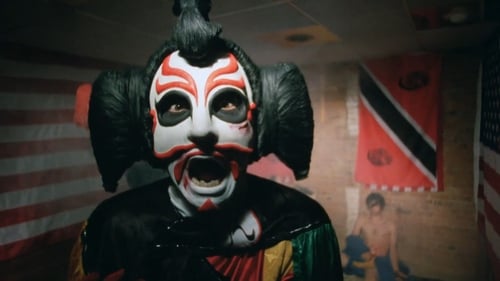
Award Presenter
10 años después de su última aparición, Toxie tendrá que enfrentarse a un monton de escoria humana y a un individuo como él llamado Noxie, para que vuelva la paz a Tromaville.

Documentary about American artist and former Warhol superstar, Brigid Berlin.

An agit-prop edutainment ho down featuring a bevy of warrior lapdancers struggling to overthrow corporate state capitalism and rancid criminal globalisation through amateur wrestling, gun juggling and anarchist debate.

Doc Wax
A group of unemployed theater actors survive by working as illegal money collectors. The loan shark they are working for owns an Off-Broadway theater. As he decided to play "American Buffalo" there, a bloody battle for the favorite roles begin.
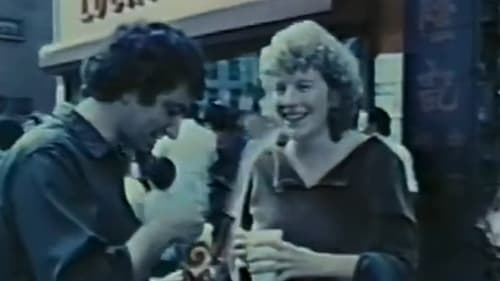
Self
Filmmaker Jonas Mekas films 160 underground film people over four decades.

A SOV dramatization of the crimes of the Green River Killer, by the cult filmmaker Ari Roussimoff.

Himself
Not a documentary in the strictest sense of the word. Rather, it is a journey through the world of the artist Jonas Mekas - one of the exponents of independent U.S. movies; founder and director of the New York Anthology Film Archive.

J. Jerry Franky
A dystopian future in which bodily contact is taboo and all children are conceived artificially. As a result, allergies are out of control and flowers are considered poisonous. Amidst this chaos, one couple decides to have a baby the old fashioned way and it causes an uproar.

The Actor
In an empty lot in Harlem, an elite group of New Yorkers prepares for a book-signing party given in honor of a writer who never shows up. Local residents, dealing with the practicality of life, look on as the guests obsess about identity, status, and success.

James
A young woman who is obsessed with Buster Keaton stays in the sanatorium where the actor was once a patient.

Bill Rice hypnotizes Taylor Mead.
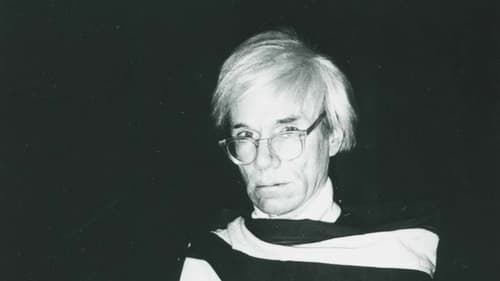
Self
Documentary portrait of Andy Warhol.

A one-hour trip down Manhattan's Lower east Side.

Father
Paul Mills is a miserable, lonely man leading a meaningless existence in a nameless city and has visions of the Spirit of Death waiting to collect him while having encounters with various people while seeking solace for his short life knowing it will end soon

Himself
Documentary on Andy Warhol's cinema of the sixties, made for Channel 4 in association with The Factory, MOMA and the Whitney Museum of Art and in collaboration with Simon Field.

Alice ends up in the derelict houses of Coney Island and Times Square. She sinks into a wonderland of decadence and despair, into the no-mans-land of lost souls, charlatans, broken dreams and cheap perversions.

The Judge
Set in the future, this tells of an Earth run by a conglomerate called the LaFont Corporation, which uses machines to rule its subjects. "Troublemakers" and malcontents are exiled to an artificial planet called Terra Nova. Problems arise when Terra Nova suddenly shifts its orbit and threatens to crash into Earth.

Music
“New York plays itself, as Taylor Mead and Winifred Bryan regale in pas de deux among the trashcans and the towers. The Studiedly Goofy and the Monumentally Grand are joined in masterly pas de don’t [...] The awed couple do battle with the status quo and teach the world to dance on the head of a bin. Rice detects real dignity in Bryan and amazing grace in Mead as they essay solitary promenades through the parks, subways and streets of a wintery New York landscape. Photographed and directed by Ron Rice, edited and scored by Taylor Mead.” –Edward Leffingwell

Editor
“New York plays itself, as Taylor Mead and Winifred Bryan regale in pas de deux among the trashcans and the towers. The Studiedly Goofy and the Monumentally Grand are joined in masterly pas de don’t [...] The awed couple do battle with the status quo and teach the world to dance on the head of a bin. Rice detects real dignity in Bryan and amazing grace in Mead as they essay solitary promenades through the parks, subways and streets of a wintery New York landscape. Photographed and directed by Ron Rice, edited and scored by Taylor Mead.” –Edward Leffingwell

The Atom Man
“New York plays itself, as Taylor Mead and Winifred Bryan regale in pas de deux among the trashcans and the towers. The Studiedly Goofy and the Monumentally Grand are joined in masterly pas de don’t [...] The awed couple do battle with the status quo and teach the world to dance on the head of a bin. Rice detects real dignity in Bryan and amazing grace in Mead as they essay solitary promenades through the parks, subways and streets of a wintery New York landscape. Photographed and directed by Ron Rice, edited and scored by Taylor Mead.” –Edward Leffingwell

Rippley
Critic Gary Indiana wrote this satire and plays Dom, a rich, naive and young homosexual who moves into his sister's apartment. He immediately becomes involved with the lives of his quirky new neighbors. Rippley (Taylor Meade) is the chatty but depressed author and talk show host. Dominatrix Mavis (Cookie Mueller) drops by to visit or ask for child sitting favors when free from the demands of her kinky clients. Jackie Curtis plays Buddie, the handsome hunk who picks up Dom in a local bar, and Geoffrey Carey is the Angel of Death who carefully watches over all activity. (IMDb)

The Uncle
The Sunset Blvd. of underground cinema, and a suitably ambivalent retrospect on the star-game casualties of New York's upper depths, with Patti Astor statuesquely hysterical as a 20-year-old Norma Desmond, made up to recall Edie Sedgwick and surrounded by Warhol's lost children. We've been here before, but without the hindsight: a camera cruise along a hustler's meat-rack, kitchen-talk over cold canned spaghetti, Taylor Mead grimacing in a spastic dance, the silent stud a sullenly passive observer. Mitchell's ear for campy native wit and eye for figures in a loft-scape happily keep at bay the otherwise contagious NY ennui.
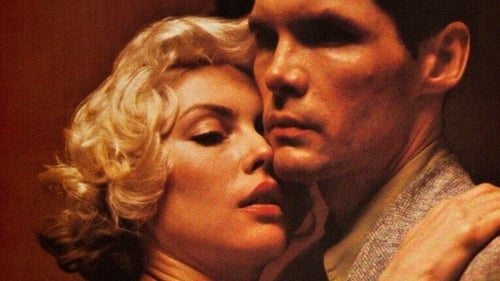
Walter
A 1950s accountant with a restless wife grows paranoid after hiding a milk thief's corpse next door.

Tally Brown, New York is a 1979 documentary film directed, written and produced by Rosa von Praunheim. The film is about the singing and acting career of Tally Brown, a classically trained opera and blues singer who was a star of underground films in New York City and a denizen of its underworld in the late 1960s. In this documentary, Praunheim relies on extensive interviews with Brown, as she recounts her collaboration with Andy Warhol, Taylor Mead and others, as well as her friendships with Holly Woodlawn, and Divine. Brown opens the film with a cover of David Bowie’s “Heroes” and concludes with “Rock ’n’ Roll Suicide.” The film captures not only Tally Brown’s career but also a particular New York milieu in the 1970s.

Michel Auder’s Jesus – in which underground NY artists and Warhol superstars openly discuss their beliefs. Jesus – which premiered as a screening at The Kitchen in 1980 – mixes documentary elements such as footage of evangelical TV programs, books, cartoons, paintings, and other Jesus related imagery – with performances including Taylor Mead as a priest in the West Village and Florence Lambert playing a crucified Jesus. Also, intercut throughout are surprisingly candid interviews with Auder’s friends, family, and people he approaches on New York City streets about their faith and relationship to the world’s most famous person. Among those interviewed are Diego Cortez, Jackie Curtis, Gerard Malanga, Alice Neel (Andrew Neel’s grandmother), Larry Rivers, and Viva.

Self
During the summer of 1966 Jonas Mekas spent two months in Cassis, as a guest of Jerome Hill. Mekas visited him briefly again in 1967, with P. Adams Sitney. The footage of this film comes from those two visits. Later, after Jerome died, Mekas visited his Cassis home in 1974. Footage of that visit constitutes the epilogue of the film. Other people appear in the film, all friends of Jerome.

Low budget drama centering on unscrupulous political Machiavellians in the Soviet Union.
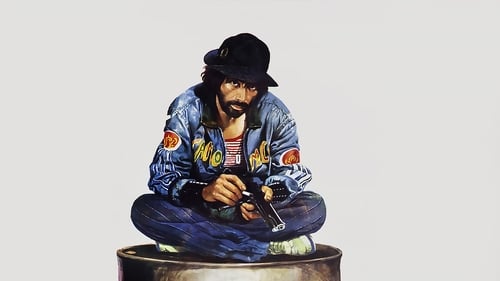
Ubriachella (uncredited)
El policía encubierto Nico Giraldi viaja a Nueva York y Las Vegas para encontrar a un policía corrupto que ha manchado la reputación de la brigada.
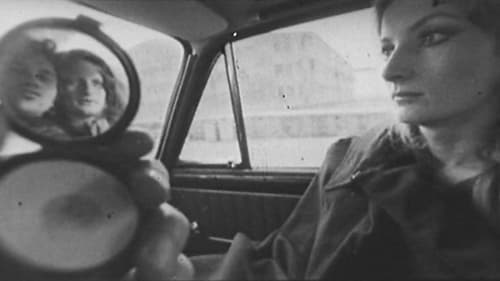
Cleopatra situates itself in the same relationship to Hollywood as the Warhol/Morrisey films of the period. It corresponds to Joseph Mankiewicz's 1963 Cleopatra, starring Elizabeth Taylor and Richard Burton which Auder's cast watched and used as the starting point for scene by scene improvisation Auder drew his cast from Warhol's ensemble – including not only Viva and Louis Waldon, but also Taylor Mead, Ondine, Andrea Feldman, Gerard Melanga and others.

Viewer / President / Minster / Nurse
In 1969, Taylor Mead complained to his friend artist Wynn Chamberlain that Andy Warhol had never paid him for any of the work he had done for him and Wynn said he would make a film especially for Taylor. Inspired by the banality of 1960's television, Chamberlain wrote and directed Brand X, an 87 minute series of faux television shows spoofing the politics and mass media of the day, complete with commercials for Sex, Sweat, Computer Dating and Peanut Butter. BRAND X follows Taylor Mead through a day in a wacky television studio as he portrays an exercise guru, a talk show host, a veteran returning from the American Civil War, a hospital patient in a soap opera, the President of the United States and a televangelist giving the Nightly Sermon. BRAND X satirizes President Nixon, the Vietnam War, sex, drugs, computers, money and race relations.

Writer
"The story of a shipwrecked baby reared by a kindly animal. See Tarzam, the beast-man, invent the art of painting. He meets his first human. His scene deepens from innocence to corruption and to final violence. Taylor is sublime, as always. The text is his, of course." – Edwin Denby *Contains a scene where "Tarzam" (played by Mead) gets sick from eating berries and is cured when a missionary doctor, played by Edwin Denby, administers an enema.

Tarzam
"The story of a shipwrecked baby reared by a kindly animal. See Tarzam, the beast-man, invent the art of painting. He meets his first human. His scene deepens from innocence to corruption and to final violence. Taylor is sublime, as always. The text is his, of course." – Edwin Denby *Contains a scene where "Tarzam" (played by Mead) gets sick from eating berries and is cured when a missionary doctor, played by Edwin Denby, administers an enema.
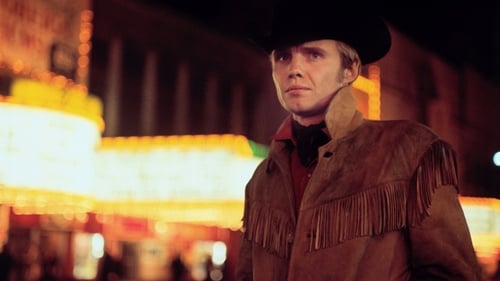
The Party
Soñando con una vida como cowboy de exhibición, el joven e ingenuo tejano Joe Buck se encamina hacia la ciudad de Nueva York para convertirse en un gigoló, pero pronto descubre que ese mundo no es como él se imaginaba. Sin dinero y sin amigos, conoce a Rico "Ratso" Rizzo, un timador que le quiere estafar.

Hernando Cortez
A distinctly 1960s counterculture film presenting a series of odd sex-themed vignettes.

Nurse
Five lonesome cowboys get all hot and bothered at home on the range after confronting Ramona Alvarez and her nurse.

While on a leisurely ride in the country, a kinky dominatrix picks up a young male hitchhiker. At the first opportunity she handcuffs and blindfolds him, then takes him to a farmhouse where she ties up the young man and brings out three of her fellow dominatrixes, who take turns abusing and humiliating their captive--and each other.

Self
The husband-and-wife acting team of Julian Beck and Judith Malina heads the cast of the "theatre on film" presentation “Emergency”. Screened at the First International Festival of Women’s Films, 1972.

Taylor
Viva and Taylor Mead are a married couple renting an extra beach-house to a group of surfers sent to them by a Mr. Morrissey of La Jolla Realty. Their daughter, Ingrid Superstar, is pregnant and on the hunt for a husband. Mr. Mead, who is gay, tries to pawn her off to one of the surfers. Meanwhile, Viva wants a divorce from her boy-crazy hubby, who wants a surfer of his own. Tom, a surfer, is inveigled by Mr. Mead to urinate on him. In a close-up, Mr. Mead receives Tom's offering ecstatically, after which he comments, "I'm a real surfer now."

Director
“The film flickers through a millennium of culture as it would appear to a tourist. It is an intense film, yet there is an incredible wealth of information surprisingly accessible. Aside from the exciting experience itself, the breakneck history lesson is a reminder that the mind can move in lightning steps: The plodding way information is typically presented is an insult to mental capability.” - Bartlett Naylor

es una película experimental

Short made for double parallel projections, for which Allen Ginsberg said that it's his favorite underground European film, debut from the director, cheeky hommage to B-movies.
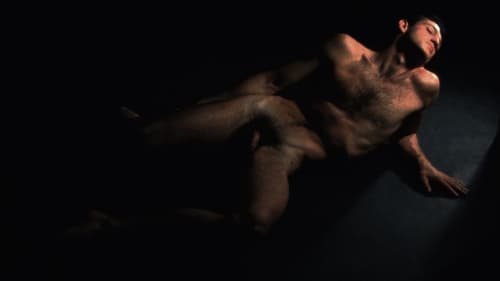
The Demon or Sprite
Prometheus, on an Odyssean journey, crosses the Brooklyn Bridge in search of the characters of his imagination. After meeting the Muse, he proceeds to the "forest." There, under an apple tree, he communes with his selves, represented by celebrated personages from the New York "underground scene" who appear as modern correlatives to the figures of Greek mythology. The filmmaker, who narrates the situations with a translation of Aeschylus' Prometheus Bound , finds the personalities of his characters to have a timeless universality.

Photographed entirely in color, Four Stars was projected in its complete length of nearly 25 hours (allowing for projection overlap of the 35-minute reels) only once, at the Film-Makers' Cinematheque in the basement of the now-demolished Wurlitzer Building at 125 West 41st Street in New York City. The imagery in the film is dense, wearying and beautiful, but ultimately hard to decipher, for, in contrast to his earlier, and more famous film Chelsea Girls, made in 1966, Warhol directed that two reels be screened simultaneously on top of each other on a single screen, rather than side-by-side.

Homeo is a mental construction made from visual reality, just as music is made from auditive reality. I put in this film no personal intentions. All my intentions are personal. I’ve made this film thinking of what the audience would have liked to see, not something specific that I wanted to say: what the film depicts is above all reality, not fiction. Homeo is, for me, the search for an autonomous cinematographic language, which doesn't owe anything to traditional narrative, or maybe everything. Cinema is, above all, part of a way of life which will become more and more self-assured in the years and century to come. We are part of this change, and that’s why I tried in Homeo to establish a series of perpetual changes, in constant evolution or regress, which tries, above all, to focus on things.

Harmonica Player
At a New York City restaurant, the patrons are men, nude but for a G-string, waited on by one woman, also clad in a G-string and a G-bestringed waiter.

Hobo
Warhol's Factory visits Los Angeles.

"Desire Caught by the Tail" - Described as surrealistic, absurd, and weird. The narrative is nonlinear and the meaning nearly impossible to decipher, the work has been praised despite, and sometimes for, its lack of message.

Music
"Después de ver los diarios de Taylor Mead, ya no puedo mirar a mi alrededor. ¡Hay tanto que ver! Así que ahora me siento de espaldas a la naturaleza, como Gertrude Stein"

Director
"Después de ver los diarios de Taylor Mead, ya no puedo mirar a mi alrededor. ¡Hay tanto que ver! Así que ahora me siento de espaldas a la naturaleza, como Gertrude Stein"

Self
The films were made between 1964 and 1966 at Warhol's Factory studio in New York City. Subjects were captured in stark relief by a strong key light, and filmed by Warhol with his stationary 16mm Bolex camera on silent, black and white, 100-foot rolls of film at 24 frames per second. The resulting two-and-a-half-minute film reels were then screened in 'slow motion' at 16 frames per second.

Director
"N.B. Sound On Cassette. Sync beginning of sound with image before man in a red sweater. Generally, start cassette while film leader is seen" - Filmmakers Coop description

Himself
Taylor Mead humorously bares his ass for Andy Warhol.

In 1963-64 Salvador Dali did a series of "Happenings" events in a New York. In all cases Peter Beard acted for Dali as both "production manager" and "casting director". The stars of the events in this film are Werushka and Taylor Mead.

President Sandy Studsbury
The president of the United Status, who, when he isn’t at the White House— a dilapidated Victorian— conducts his top-secret affairs on a deserted beach.

Director
"My home movies which weigh 2 pounds so far began in Mexico City where I got bored and bought a 50-ft. Keystone at National Pawn Shop-I was immediately turned on-to the City, to Mexico-it really makes a difference-and in 16mm-but I wanted to shoot in color and it costs about 10 dollars/50 ft. in Mexico so I had to push single frame button much of the time-oh me, but its lovely anyway-I kept pushing once I crossed border into U.S. and N.Y. and Malibu" - T.M.

Tramp
Based on Jerome Hill's unpublished novel, Peacock Feathers, this ensemble piece focuses on the relationship between two aging sisters.

Tarzan
Shot during Warhol's cross-county trip to Los Angeles during his second exhibition at the Ferus - the same trip during which he filmed the footage for Elvis at Ferus. Locations included Hollywood, Malibu, Venice, Pasadena, Topanga Canyon, the Santa Monica pier and the Beverly Hills Hotel.

Himself
The couch at Andy Warhol's Factory was as famous in its own right as any of his Superstars. In Couch, visitors to the Factory were invited to "perform" on camera, seated on the old couch. Their many acts-both lascivious and mundane-are documented in a film that has come to be regarded as one of the most notorious of Warhol's early works. Across the course of the film we encounter such figures as poets Allen Ginsberg and Gregory Corso, the writer Jack Kerouac, and perennial New York figure Taylor Mead.
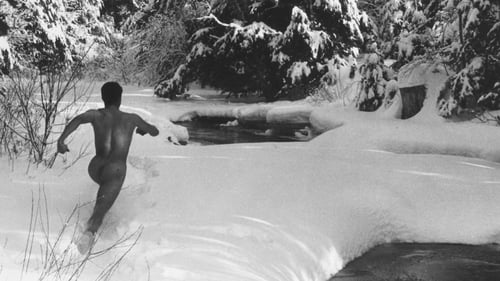
Convict II
Jack and Leo vie for the affections of Vera- who appears a little differently to each man- over the course of a series of energetic sketches, flashbacks and homages.

"...wild and dirty, but so easy to understand...that it may be considered a fair introduction to cinematic youth on-the-march. It has distinct traces of humor...and offers several moments of pleasure...the star, Ingrid Lothigius, is a blond who photographs well and deadpans her life and hard times like a pro." -Archer Winsten, The New York Post.

Taylor Mead plays eleven roles in this entirely improvised film, as he drifts aimlessly through the ruins of a series of soon-to-be-demolished Victorian houses, sometimes appearing in drag, sometimes in blue jeans and a sweatshirt.

Himself
An Andy Warhol short film

Scribbles
A man recalls the sad, short life of his narcotics-addicted brother.

Flower Thief
A beat vagabond traverses San Francisco's deepest nooks and crannies, spreading about a peculiar brand of wisdom and lollygagging.

"Consisting of a poetic stream of razor-sharp images, the overt content of SENSELESS portrays ecstatic travelers going to pot over the fantasies and pleasures of a trip to Mexico... highly effective cutting subtly interweaves the contrapuntal developement of themes of love and hate, peace and violence, beauty and destruction."-- David Brooks.

Tayor travels in his white Rolls Royce to the Second City nightclub, where he dances. With Tayor Mead, Katherine Roberts, and Roberts Blossom.

The Faggot
In this silent color 8mm film shot in Venice Beach in 1961, Taylor Mead plays “the faggot” who persistently cruises a butch guy intent only on fishing in one of the canals. Mead uses the magic wand of a radio antenna to transform himself into ever more implausible drag figures in his attempts to garner the guy’s interest, but only succeeds in soliciting his amused laughs. “I played eight or more roles in this film–all bizarre, outrageous, non-pornographic but upsetting to many mores.” (Taylor Mead)

Taylor Mead teaching his craft.


